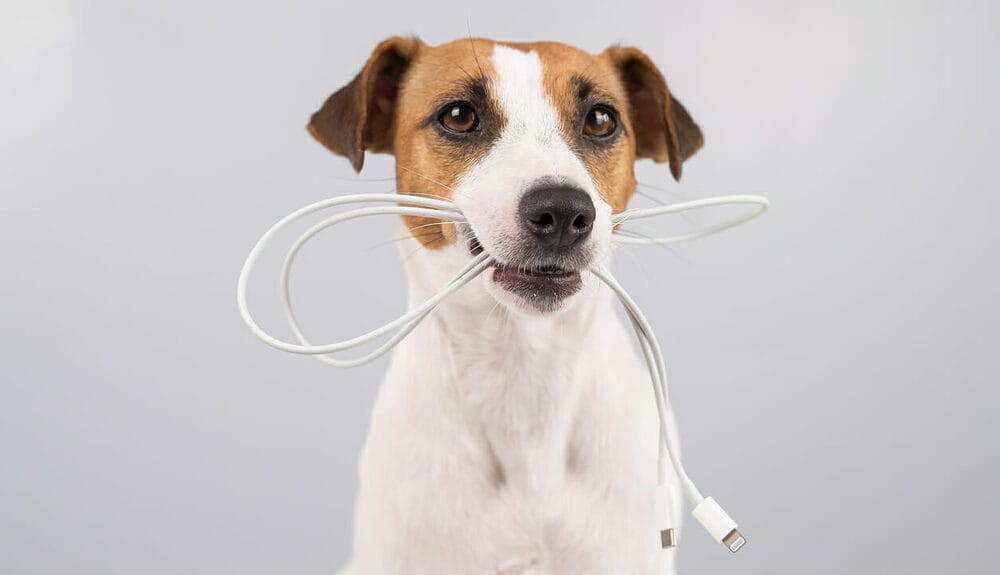
Having pets around the house can definitely be a wonderful thing, however, they may often develop a habit of chewing on things they aren’t supposed to.
While chewing is a natural thing, it can pose a danger when they find themselves tangled in electrical cords. But, what really is the reason why dogs like to chew on electrical cords?
8 Reasons Why Dogs Chew Electrical Wires
Dogs have a habit of chewing, and sometimes it can be destructive. But why do they do it? It’s a fur-ocious mystery that has puzzled owners for centuries.
We’ve compiled a list of possible reasons why their chewing behavior is so irresistible, but be warned: this may make you want to stock up on chew toys and cord protectors.
Obsessive Compulsive Disorder
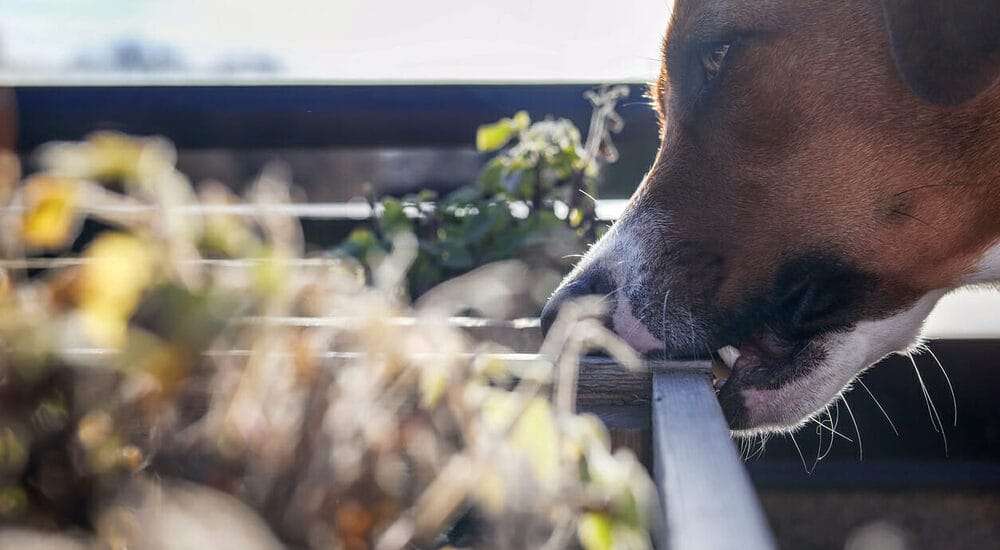
In the dog world, OCD is often referred to as Canine Compulsive Disorder or CCD. This condition is often demonstrated when a dog does things in an extreme and repetitive way. According to AKC, there are certain breeds that are more prone to developing obsessive compulsive tendencies.
Breeds such as German Shepherds, Bull Terriers, and Doberman Pinschers are susceptible to having CCD behavior. It was revealed that people and dogs who have OCD have modified serotonin transmission and this affects how the brain cells and nervous system communicate with each other.
Veterinarians and animal behaviorists also suggested that other factors such as lack of exercise and mental stimulation, high levels of anxiety or not getting enough attention can also contribute to dog’s developing CCD.
Dental Problems

Oftentimes, your furry friend may be experiencing discomfort and you might not even know it. So, if your dog has suddenly started chewing on cords, it might be suffering from dental pain.
If you have a puppy at home, be prepared for their teething stage. Pet MD said that your puppy’s baby teeth may erupt starting when they are three weeks old until they reach their eight week. However, these baby teeth don’t last for very long.
Their baby teeth will start falling when they are around three months old and may continue until they are six months. Typically, large dog breeds lose their baby teeth sooner than smaller dog types.
Curiosity
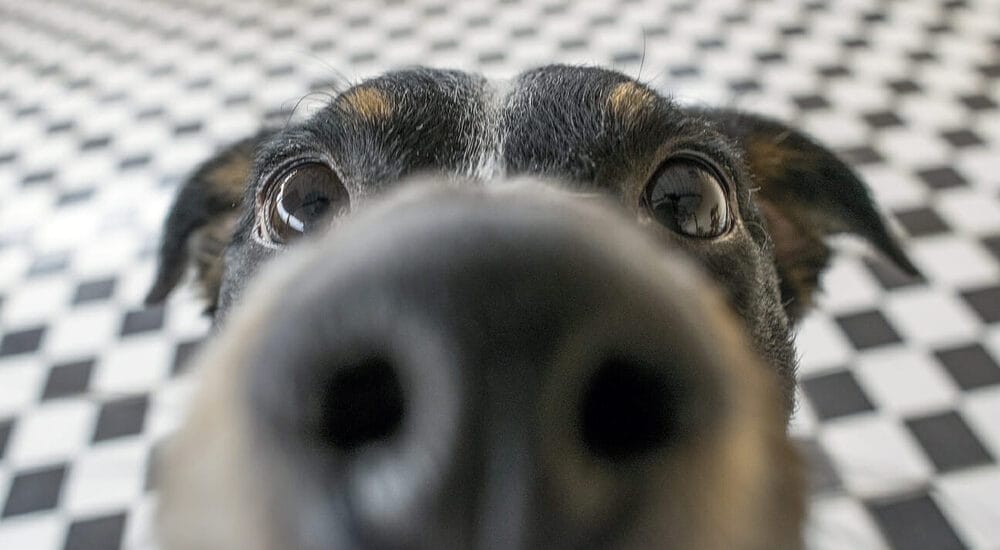
Dogs are naturally very curious and this is especially true when they are in their puppy stage. These little nuggets love to explore their surroundings as everything is a new sight, new smell, and new taste to them.
Naturally, when your dog starts exploring your home, they might find themselves tangled up on those electrical wires that hang low. Young dogs are usually very curious and active but his behavior often changes when they get older.
Being curious and inquisitive is a good sign of their social skills but may pose risk when they start chewing and playing things that might be dangerous for them.
Boredom
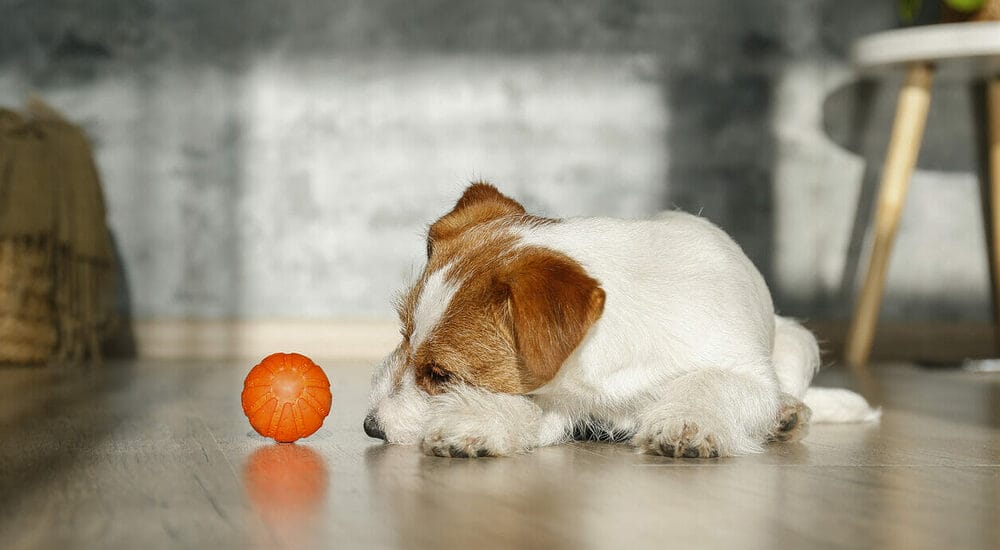
Dog’s get bored too, especially if they don’t get enough physical activities or play time. If they are left alone in the house all day when you leave for work, chances are you might come home at the end of your shift to a house that looks like it’s been run over.
When dogs get bored, they tend to sniff around nooks, under the table, behind cabinets and they might end up finding those electrical cords that seem so interesting to them. If they end up chewing them without you knowing, chances are they might end up doing it again the next day. This habit may lead to destructive behavior and so they might end up chewing not only cords but other things around the house.
Separation Anxiety
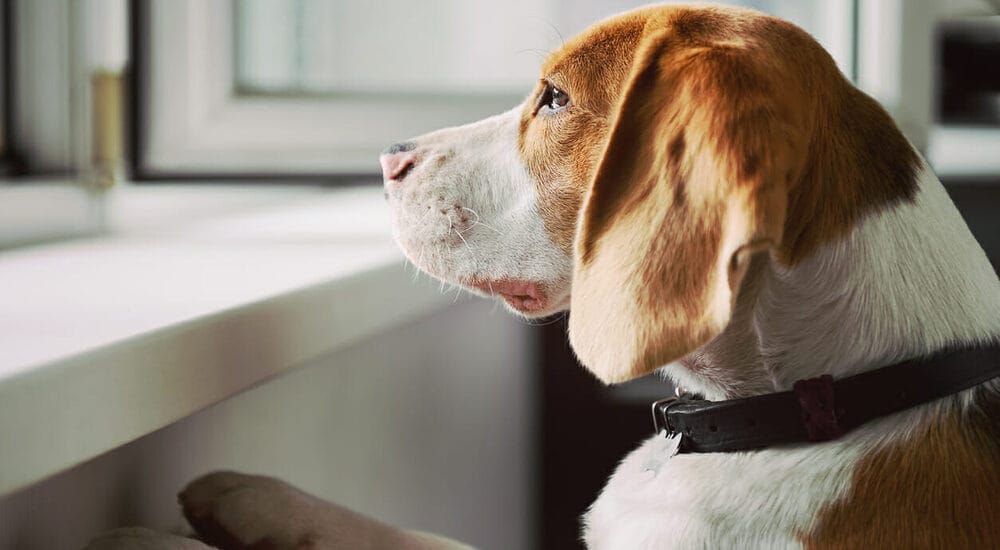
A dog that is very attached to its owner may show signs of separation anxiety once left alone. According to WebMD, your dog may show signs of separation anxiety when they do more than just whining when you are about to leave the house.
A dog suffering from this condition may destroy things around the house, claw on the door or chew anything they could get their mouth on. They may even pace often or try to “Houdini” their way out of the house.
Innate Instinct
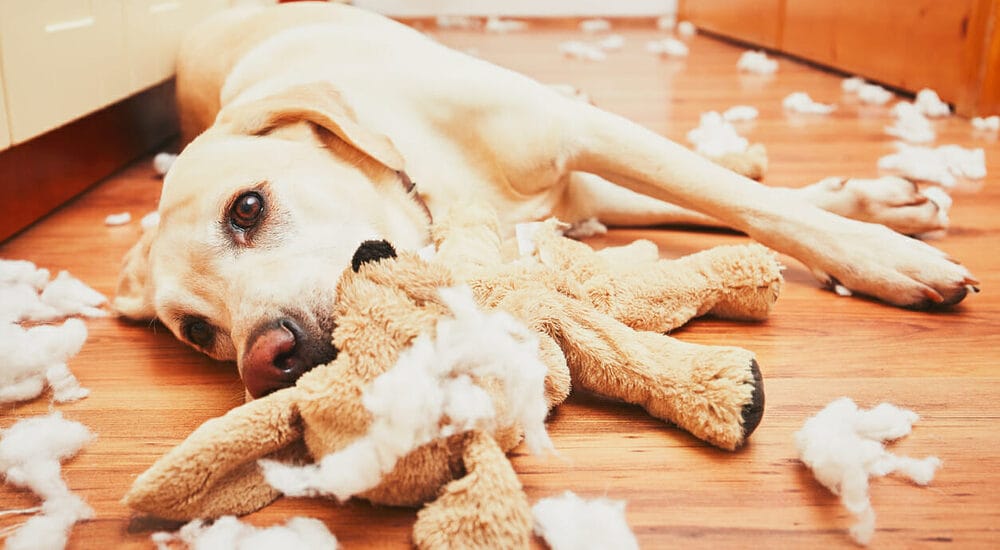
Sometimes there are just certain breeds that like chewing. Tasty Bone website listed some of the top dog breeds that are predisposed to chewing. The list includes Labradors, Chihuahuas, Border Collies, Jack Russell’s, Golden Retrievers, and Beagles.
For instance, dogs like Golden Retrievers are offensively so cute but they do like to chew a lot. Because they are bred to retrieve things – hence, the name – they like to hold things using their mouths. They also have very playful energy which may result in heavy chewing if not corrected early on.
Stress
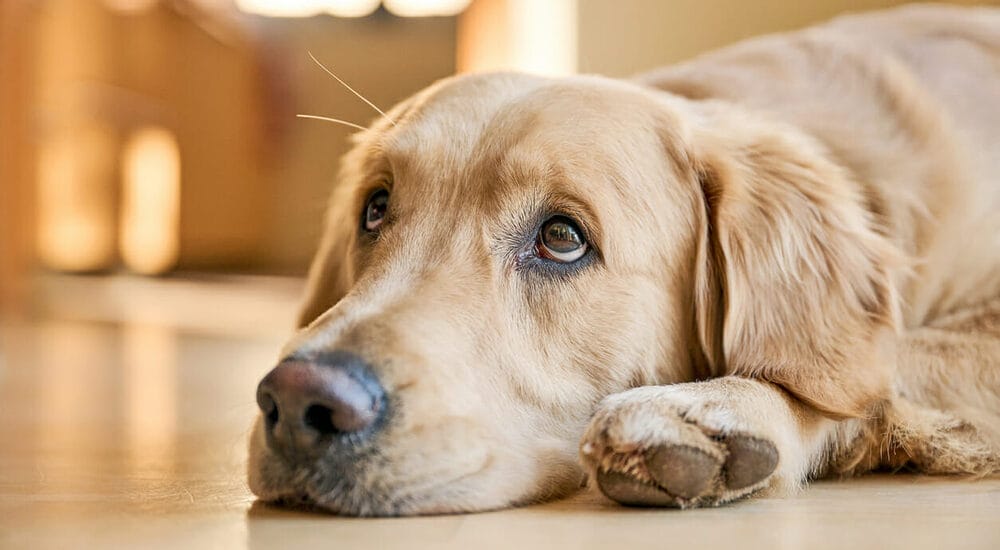
When a dog is stressed, it can trigger excessive chewing. As a way to cope with how they are feeling they might exhibit certain behaviors like chewing on themselves or things around the house.
If they do not have chew toys, they might end up chomping on your shoes, corners or tables, rugs, and cables. Potentially anything that is within their peripheral vision and reach.
Medical Issue
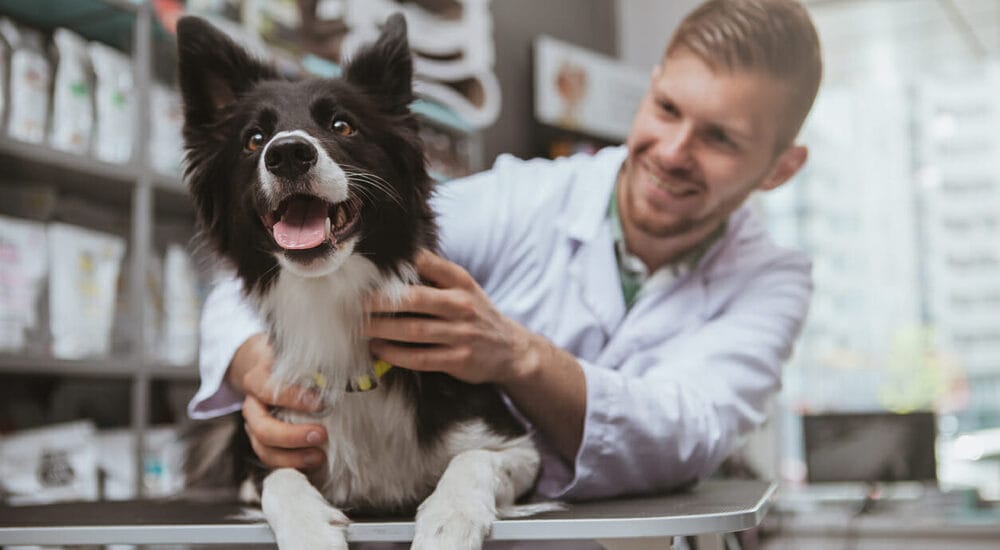
Another reason behind your dog chewing on electrical cords is due to underlying medical problems. According to Purina, when a dog lacks the vitamins and nutrients it needs, they might develop a condition called “Pica”.
This is when a dog has the urge to chew non-food substances and is often mistaken as a dog chewing problem. Similarly, gastrointestinal problems may also lead to excessive and inappropriate chewing.
If your dog is showing sudden and unexpected signs of chewing. You might want to drop by the vet clinic for a proper diagnosis.
How to Stop your dog chewing electrical cords?
Chewing on electrical cords pose a great danger for your furbabies. It’s even more life-threatening when you are not around the house when this happens.
In worst case scenarios, your dog may suffer electric shock or electrocution which could be fatal. This could lead to minor to severe injuries and may even cause sudden death.
To avoid accidents like this, you need to correct this kind of behavior when you see it happening. Here are some tips that might help:
- Block off the cables and cords and tuck them behind cabinets, bookshelves, and sofas. While you do this, make sure that you have properly hidden them and your pet can’t reach the cables.
- Covering the cables is one of the easiest methods to protect your fur babies from electrocution due to chewing on electrical cords. There are various products out there in the market to help with this problem, so you’ll never run out of options.
- Another way to stop your pets from chewing on electric cables is to use deterrent spray. Because dogs have a strong sense of smell and taste, you’ll have no problem keeping them away from the bitter-tasting cords. However, make sure that you are using something that is non-toxic and safe on animals.
- ake sure that your pets get enough exercise. Dogs need daily walkies to improve their physical and mental health. Chances are, when your dog is left in the house for too long without any physical activities, they may release their pent up energy by chewing on things.
Final thoughts – Hide your cords
While chewing comes naturally to dogs and may even offer some dental benefits, it could become problematic when it becomes excessive and destructive.
The reason behind it may be one or a combination of the things listed above. And in order to approach the problem more effectively, it’s convenient that you know the probable causes as to why your dog is chewing on electrical cords – or perhaps, other things around the house as well.
We hope that you found the information that we provided helpful. If you’re interested to read more dog related articles, please see more from our list!

